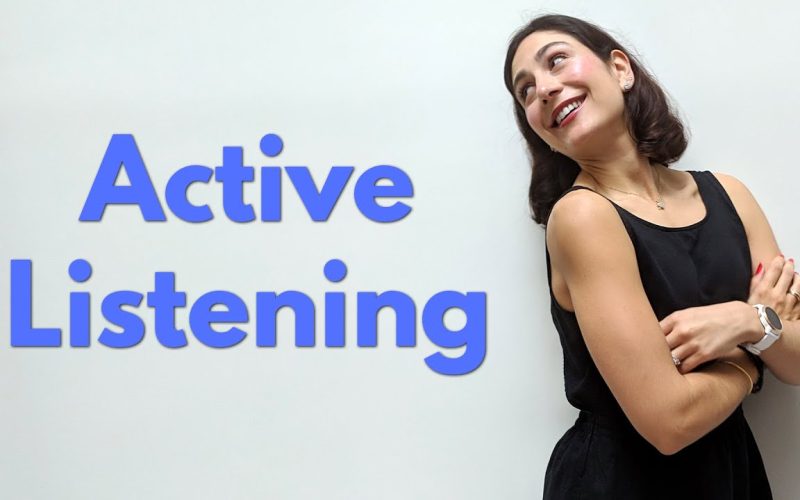Introduction
In a world filled with distractions and constant noise, truly listening to someone has become a rare and valuable skill. Yet, listening is the foundation of all meaningful relationships whether with a partner, friend, family member, or colleague. The art of listening goes beyond hearing words; it’s about understanding emotions, showing empathy, and building trust. When we listen actively, we create a safe space for others to express themselves, fostering deeper connections and resolving conflicts more effectively. In this article, we’ll explore why listening matters in relationships and share practical tips to help you become a better listener. Ready to transform your relationships? Let’s dive in.
What is the Art of Listening?

The art of listening is not just hearing the words someone is saying. It means giving your full attention to the speaker, understanding what they are saying, and responding thoughtfully. Unlike regular listening, where you might only hear the words, active listening means you really try to understand what’s being said and how it’s being said.
In relationships, listening in relationships helps you understand what the other person needs and feels. It can create a safer and more open space for them to talk. When you listen well, people feel heard and respected.
Why Active Listening is Important in Relationships

Active listening is essential for good communication. It can help you understand the other person’s feelings, reduce misunderstandings, and build trust. Here’s why active listening is so important:
1. Helps You Understand Feelings
When you listen carefully, you can pick up on emotional signals. You will notice how someone feels based on their tone of voice or body language, which will help you empathize and show you care.
2. Builds Trust
Active listening helps people feel like they can trust you. When you listen to them without interrupting or judging, they know their thoughts are valued, and this trust makes relationships stronger.
3. Improves Communication
Good communication is not just about speaking clearly, but also about understanding the message. Active listening helps you get the message right. When you listen carefully, there are fewer chances of misunderstandings, and it’s easier to communicate clearly.
4. Helps Solve Problems
Misunderstandings can cause arguments. But if you listen actively, you can spot small issues before they become big problems. This way, you can find solutions faster and with less conflict.
5. Encourages Openness
When people feel heard, they are more likely to open up. Active listening creates a space where others can express themselves freely, which makes relationships deeper and stronger.
Tips for Becoming a Better Listener

Becoming a good listener takes practice. It requires focus and patience, but it’s something anyone can improve. Here are some tips to help you become better at listening:
1. Give Your Full Attention
The easiest way to improve your listening is to pay full attention to the speaker. Turn off your phone or any other distractions. Let the person know that their words are important to you.
2. Don’t Interrupt
Let the person finish speaking before you reply. Interrupting can make them feel ignored. Instead, wait until they are done, and then share your thoughts.
3. Use Positive Body Language
Small actions like making eye contact, nodding, or leaning in slightly show that you’re paying attention. This helps the speaker feel that you’re truly listening to them.
4. Ask Questions
If something is unclear, ask the speaker to explain it. This shows that you care and want to understand their message fully.
5. Paraphrase or Repeat
After the speaker is done, repeat what you heard to make sure you understood correctly. For example, you can say, “What I hear is that you’re feeling upset about…” This lets them know you’re listening and helps avoid confusion.
6. Be Empathetic
Try to see things from the other person’s point of view. Instead of offering advice right away, just listen and show you care. Sometimes, people just need someone to listen to them.
The Role of Listening in Professional Relationships

Good listening is not only important in personal relationships, but also in professional settings. Whether you are working with a team, dealing with clients, or talking to your boss, listening is a key skill.
1. Makes Teamwork Better
Active listening encourages everyone to share their ideas. When people feel listened to, they are more likely to contribute, and this helps teams work together more effectively.
2. Makes You a Better Leader
Leaders who listen well can understand their team members better. This helps them make better decisions and build stronger, more supportive relationships with their team.
3. Builds Client Relationships
Listening carefully to clients helps you understand their needs and concerns. This allows you to offer better services and creates stronger, long-lasting business relationships.
The Importance of Listening in Communication

Listening is one of the most important parts of communication. Many times, people focus more on speaking and less on really hearing what others have to say. However, listening carefully can help you understand the other person’s feelings, thoughts, and needs. When you listen well, you can respond more thoughtfully and keep the conversation flowing smoothly. It shows that you respect and care for the person you’re talking to.
Active Listening Helps Build Stronger Relationships
In any relationship, communication is key, and active listening is one of the best ways to build stronger connections. When people feel heard and understood, they are more likely to trust you and feel comfortable around you. This makes it easier to solve problems together and keep your relationship healthy. Whether it’s with family, friends, or a partner, listening actively helps create a deeper bond.
Active Listening Builds Empathy

Active listening is a great way to show empathy. It means you’re paying attention to the other person’s feelings and thoughts. By listening carefully, you can better understand what they’re going through and offer the support they need. Empathy is important in any relationship because it shows that you truly care about the other person’s well-being.
How Listening Helps in Conflict Resolution
In any relationship, conflicts are bound to happen. But active listening can help resolve disagreements in a healthy way. When you listen to understand, rather than to respond, you can see where the other person is coming from. This creates a calmer environment where both sides feel heard and respected. In turn, this helps find solutions that work for everyone, instead of letting the conflict escalate.
Active Listening Makes You a Better Friend

Being a good friend means being there for someone, especially when they need someone to talk to. Active listening shows that you care about your friends’ feelings and opinions. When you listen without judging or interrupting, your friends will feel valued. This can deepen your friendships and make your bond stronger, as people appreciate having someone who truly listens to them.
Challenges of Active Listening
While active listening is important, it can be hard to do well. One challenge is staying focused during conversations, especially when you’re distracted by other thoughts or devices. Sometimes, people also find it hard not to interrupt or give advice too quickly. It takes practice to really listen and understand before responding. But with time and effort, anyone can overcome these challenges and improve their listening skills.
The Future of Active Listening
The future of active listening looks bright as more people understand how essential it is for good communication. With the rise of digital communication, it’s becoming more important to stay connected and listen well, even when talking online. As workplaces and relationships continue to focus on better communication, active listening will remain a key skill. As people keep learning and practicing, active listening will become even more important in the years to come.
Analysis Table: The Impact of Active Listening
| Aspect | Active Listening | Passive Listening |
|---|---|---|
| Understanding Feelings | Better emotional understanding | Less emotional connection |
| Trust | Builds trust and respect | May cause misunderstandings or mistrust |
| Communication Clarity | Clearer and more accurate communication | Increased chance of miscommunication |
| Problem Solving | Helps resolve conflicts early | Problems can escalate without clear communication |
| Openness | Encourages openness and honesty | May cause people to hold back |
Comparative Table: Active Listening vs. Passive Listening
| Characteristic | Active Listening | Passive Listening |
|---|---|---|
| Engagement | Fully engaged in the conversation | Distracted, not fully engaged |
| Response | Thoughtful and caring responses | Quick, unthoughtful replies |
| Emotional Understanding | Shows empathy and understanding | Limited emotional connection |
| Impact on Relationships | Strengthens bonds and trust | Can weaken connections |
| Body Language | Uses positive body language (eye contact, nodding) | Less body language or no engagement |
Conclusion
The art of listening is a powerful tool for building and maintaining healthy relationships. By practicing active listening, showing empathy, and creating a safe space for others to express themselves, you can strengthen your connections and resolve conflicts more effectively. Remember, listening isn’t just about hearing words it’s about understanding emotions, validating experiences, and showing that you care. Whether in your personal or professional life, becoming a better listener can transform the way you relate to others. Start practicing today, and watch your relationships flourish.
Call to Action
How do you practice active listening in your relationships? Share your tips and experiences in the comments below, and don’t forget to subscribe for more insights on communication and personal growth!











